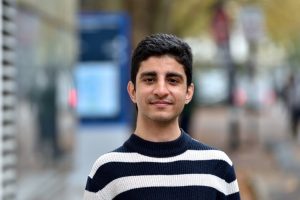
Kianoosh Ashouritaklimi – Oxford
Kianoosh studied Mathematics and Statistics at the University of Glasgow for my undergraduate degree. He first developed his passion for machine learning, particularly for probabilistic approaches, at the University of Glasgow. This interest deepened during his Bachelor’s dissertation, where he explored sparse Gaussian processes for classification problems. To solidify his foundation in machine learning, he pursued a Master’s in A.I. at Imperial College London, supported by a DeepMind scholarship. Broadly, he is interested in probabilistic models which can both generalise well and provide accurate uncertainty quantification. More specifically, he is interested in non-parametric methods (e.g. Gaussian processes), Bayesian neural networks and the overlap between them. In his spare time, he loves to cycle, produce music and read!
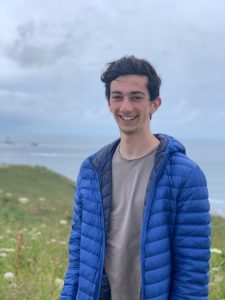
Toby Boyne – Imperial
Toby studied Engineering at the University of Cambridge, specialising in Information and Computer Engineering. For his master’s project, he used ordinal Gaussian processes to predict delays in construction projects, developing open-source software and investigating the performance gap between GPs and neural networks.
In collaboration with BASF, he will be employing Bayesian optimisation to solve design of experiment problems. Continuing the work of the Computational Optimisation Group, he will use ensemble tree kernels as a Gaussian prior to perform black-box optimisation, with a focus on providing strong uncertainty measures and implementing an end-to-end training procedure. Outside of his research, Toby likes bouldering and playing board games.
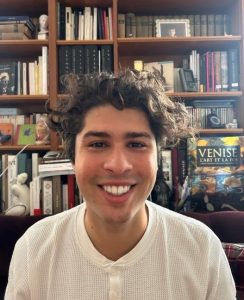 Rafaël Brutti – Oxford
Rafaël Brutti – Oxford
Rafael studied fundamental mathematics and computer science at Télécom Paris and obtained a Master’s degree in applied mathematics and machine learning at the Ecole Normale Supérieure Paris-Saclay (MVA). His master’s thesis focused on solving high-dimensional nonlinear partial differential equations using stochastic calculus and deep learning. After graduating, he worked as a quantitative researcher in hedge funds in Paris. During the StatML programme, he wants to broaden his knowledge of advanced statistical methods and apply them to problems in finance. The first project with his supervisors Mihai Cucuringu and Xavier Brokmann (QUBE Research and Technologies) will be about clustering methods and network analysis in financial data time series. In his spare time, he enjoys travelling, watching sports and discovering new cultures.
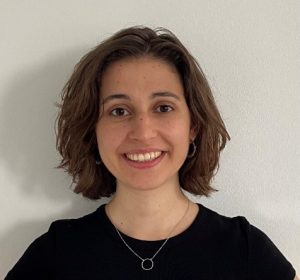
Paula Cordero Encinar – Imperial
Paula grew up in Spain and studied a double degree in Mathematics and Physics at Universidad Complutense de Madrid. She then completed a MSc in Artificial Intelligence, before obtaining a prestigious Spanish scholarship to study a second master’s in Statistics at Imperial College London, where she wanted to explore the foundations of machine learning from a statistical perspective. She has completed different internships in various application fields such as cybersecurity, quantum computing and sustainable mobility. At StatML, she wishes to strengthen her knowledge on generative modelling and delve into the aspect of explainability in machine learning models, as well as having the opportunity to share her research with different audiences. Outside of academia, Paula enjoys running, hiking, learning languages and travelling.
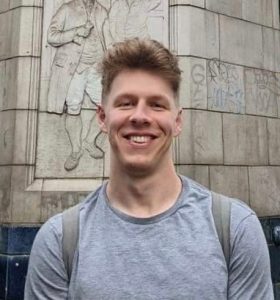 Jack Foxabbott – Oxford
Jack Foxabbott – Oxford
Jack grew up in Darlington and studied Mathematics at Imperial College London, then after a few years working in quant finance returned for a master’s in Statistics at ETH Zürich. He is particularly interested in causality, with application in out-of-distribution generalization, fairness, and explainability, and wrote his master’s thesis on causal representation learning in computer vision. He is excited to research these topics at StatML, starting with a mini-project on algebraic statistics under Prof. Robin Evans. That said, he is also interested in effective altruism and AI safety, and fears that causal inference could be the missing piece to AGI. Besides academics, he enjoys travelling, playing the piano, and watching Éric Rohmer films.
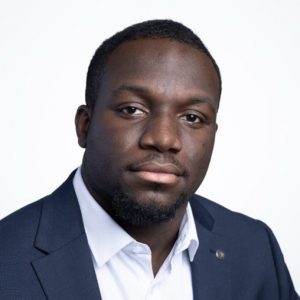
Marcel Hedman – Oxford
Marcel studied natural sciences with a focus on physics at the University of Cambridge during his undergraduate years. To advance his studies, he moved to Harvard University where he was the Choate Memorial Fellow. While there he used statistical tests and unsupervised clustering techniques to investigate the genetic bias of Alzheimer’s disease. He also founded Nural Research, a research group focused on exploring AI and grand challenges. Most recently, he was employee one at an early-stage enterprise SaaS start-up leveraging AI to support manufacturing program management and raised c.$10m in funding.
At StatML, he wishes to strengthen his knowledge of causality and robust Bayesian methodology with a particular interest in marrying this to emerging generative architectures and RL. Application focuses are within the field of precision medicine and drug development.
 Anya Iskakova – Imperial
Anya Iskakova – Imperial
Anya completed her integrated masters in mathematics at the University of Bristol, specialising in statistics. There she found great enjoyment in her studies of topics such as time series analysis, complex networks, stochastic optimisation, and anomaly detection. She looks forward to building upon this knowledge within the programme and, in particular, exploring more Bayesian statistics. Anya is fascinated by the power of data analysis to uncover patterns and make predictions, and how the intersection of statistics and machine learning can be used to address real-world problems. Outside of academia, Anya enjoys visiting art galleries and dancing, from salsa to reeling.
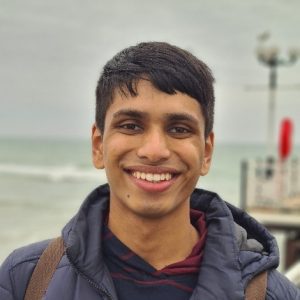 Shavindra Jayasekera – Imperial
Shavindra Jayasekera – Imperial
Shavindra studied his undergraduate and masters in mathematics at the University of Cambridge, specialising in statistics and his Part III dissertation essay titled “Generative Adversarial Networks in Biomedical Imaging” focused on the mathematical framework for GANs and the techniques used to improve their performance. Following this, he completed a masters in computational statistics and machine learning at UCL and did his dissertation at the UCL DARK lab focusing on the grokking phenomenon and the science of deep learning.
During the programme, Shavindra will be working with his advisors Yingzhen Li and Ruth Misener to develop techniques to improve the explainability, interpretability and reliability of foundational models as well as looking at applications in the field of chemistry. Shavindra’s other research interests include machine learning safety and science communication. In his spare time, Shavindra enjoys amongst other things going to music concerts, photography, hiking and trying out new sports.
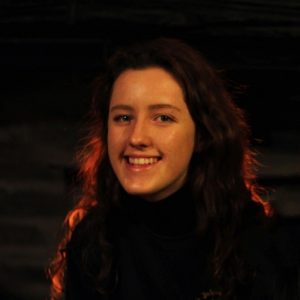 Rebecca Langdon – Imperial
Rebecca Langdon – Imperial
Becky grew up in Manchester, UK, before attending the University of Cambridge to study Physical Natural Sciences earning an MSci in Physics with an emphasis on Quantum Theories and Particle Physics. She then attended the University of Texas at Austin to work as a Graduate Research Assistant and earn a second MSci in Computer Science, Engineering, and Mathematics. She studied applied statistics and completed projects spanning reinforcement learning, Markov decision processes, and Bayesian optimization. Her thesis focused on comparing and contrasting machine learning methods for modelling habitat suitability of disease-carrying insects. In her time at StatML, her focus will be on Meta-Learning for Bayesian Optimization in Experimental Campaigns, funded by BASF, and supervised by Dr Calvin Tsay and Dr Mark Van der Wilk. In her spare time, Becky loves to bake, sew, and crochet and keeps active by running, and hiking. She also loves to travel and explore the outdoors.
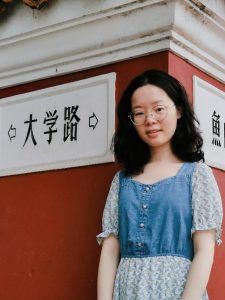
Qinyu Li – Oxford
Qinyu grew up in Suzhou, China, and went to an international school in Italy before coming to the UK. She completed my BSc in Mathematics with Modern Languages at University College London, where she studied Mathematics, French, German, and Classical Greek. Subsequently, she moved to Oxford to do an MSc in Statistics, focusing on robust Bayesian inference under model misspecification for her dissertation. After graduating in 2022, she joined Imperial College London as a Research Assistant and applied statistical methods to study the spatiotemporal trends of antimalarial drug resistance. Now back in Oxford, she looks forward to delving deeper into Bayesian statistics and causal inference. In her spare time, she enjoys reading, writing, painting, and studying classical languages.
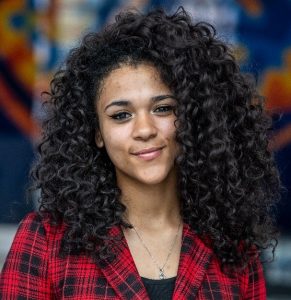
Vanessa Madu – Imperial
Vanessa is from London and was awarded an MSci in Mathematics from Imperial College London. For her final year research project, she studied how floating debris, like plastic, clusters on the ocean surface, implementing a new ocean surface model to do this. During this project, Vanessa became interested in how she could integrate techniques from Machine Learning, Time Series, and Spatial Statistics with physics-inspired models; she would like to investigate these ideas further and develop statistical methods with the specific challenges of oceanography in mind.
At StatML, Vanessa hopes to establish a problem-solving approach that uses statistical techniques acquired during the programme, integrated with her expertise in applied and computational mathematics. When not studying, Vanessa enjoys talking/writing/drawing/rhyming about science for general audiences and uses at least one rubber duck to do this wherever possible. She also enjoys crocheting toy animals, making pop-up books, and ballet.
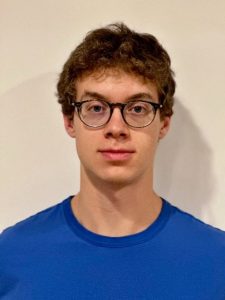 Peter Potaptchik – Oxford
Peter Potaptchik – Oxford
Peter earned his undergraduate degree at the University of Toronto, where he pursued a double major in computer science and statistics. His research focused on sampling and applications of nonstandard analysis in Bayesian nonparametrics. He also took part in internships in software engineering and quantitative finance. Peter’s interests shifted towards machine learning as his studies progressed. On the programme, he plans to work on diffusion models and statistical learning theory, but he is always eager to explore new areas.
Peter is originally from Canada, residing in Niagara-on-the-Lake. In his spare time, he enjoys playing various racquet sports and traveling. He is thrilled about the prospect of discovering more of Britain and Europe in the years ahead.
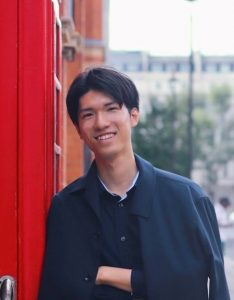
Shozen Dan – Imperial
Shozen, originally from Tokyo, pursued his studies in statistics and machine learning at Keio University and later at UC Davis. Advancing his education, he completed his master’s at Imperial College London. His thesis proposed a new method to estimate human contact intensity which utilized new approximation techniques for non-parametric Bayesian inference. Beyond his formal education, Shozen spent three years collaborating with Stanford’s medical school, contributing to public health research. At StatML, he aims to become an expert in Bayesian statistical modelling and computation, with aspirations to apply novel techniques in studying human contact patterns and their impact on infectious disease spread
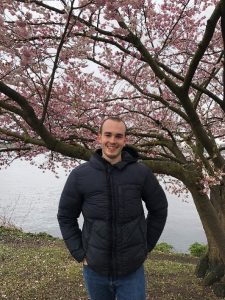
Paul Valsecchi Oliva – Imperial
During his Mathematics undergraduate degree at UCL, Paul pursued research projects in ML, which resulted in a publication on the use of GANs for PDE solving. During a MSc in Pure Maths at Imperial, he looked into the mixing of stochastic processes driven by fractional Brownian Motions and deepened his understanding of stochastic analysis. This awoke his interest in the interplay of mathematics and ML, something he wants to continue exploring in his PhD. With the supervision of Deniz Akyildiz, Paul has begun exploring Langevin dynamics for MLE, combining his understanding of stochastic analysis with novel approaches in statistical ML.
In his free time Paul is a passionate cook and host, experimenting with recipes from around the world.
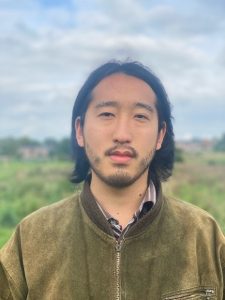
Leo Zhang – Oxford
Leo grew up in Durham before moving to London for his BSc in Mathematics at Imperial College. There he grew interested in the intersection of geometry and machine learning from modules in statistics and algebraic topology, etc. He further developed this interest through his subsequent MSc in Statistical Science at the University of Oxford, writing his master’s thesis on applying variational inference to scale up Bayesian nonparametric approaches to manifold learning and analysing their convergence rates. On the StatML program, he intends to continue working on the geometric side of machine learning, such as deep generative modelling for manifold-valued data, as well as pursuing other interests in data efficient learning – in meta-learning, Bayesian learning etc.